Coffee & Power has opened its first official workclub in Santa Monica, CA. It’s the first expansion of the “meta-company” outside the San Francisco Bay Area. The new workclub is hosted in the offices of Sparqlight, an app for making business workflows more automated and social. The expansion wasn’t even Coffee & Power’s idea; after hearing about the site, Sparqlight asked to be involved.
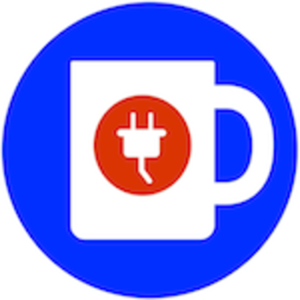
Coffee & Power is an online network for connecting people together to hire each other from small jobs, or “missions.” They can be anything from software development to chauffeur service to costume design. Workers connect via the website and, if they so desire, meet in real-world workclubs like Sparqlight. The workclubs also offer a place for virtual workers to get things done. As the movement grows, not only are workers stepping up to help each other out, but building owners are actually volunteering their spaces as workclubs.
Live feed from Coffee & Power’s San Francisco workclub:
The Future of Work
Coffee & Power co-founder Philip Rosedale is interested in nothing less than “the future of work.” Coffee & Power’s model, which also employs a virtual currency like Rosedale’s previous creation, Second Life, is explained in detail in our coverage of its launch. It’s a transaction network and job board for the new and growing independent, mobile workforce.
“I think people really get the idea that there is an under-served group of people who are part time or freelance workers who need a gathering place,” Rosedale says. The changing workforce is creating a need not just for a new kind of job, like those Coffee & Power supports, but also for new kinds of places to work. That’s why Coffee & Power’s website is grounded in physical workclubs.
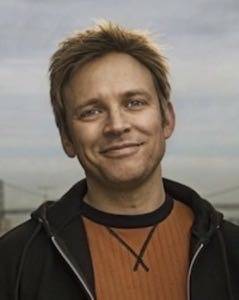
The expansion to the greater L.A. area is the first step towards a national presence. The job market and building owners alike are hungry for it. “We’ve had a number of people reach out to us and say, ‘Can we just be a location for you guys? Because we’ve got space,'” Rosedale says.
Sparqlight was among the first of those. “They had 1,500 square feet at their startup that they weren’t using, and they called us up and just said, ‘Hey, can we put up your sign?'”
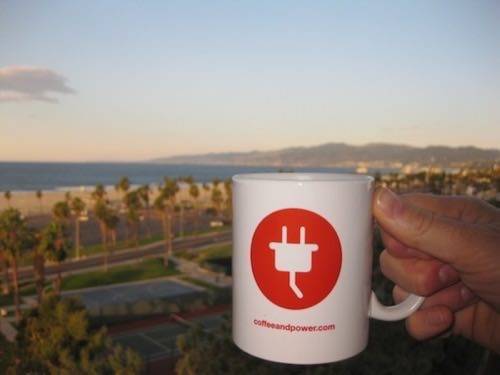
Joining The Movement
Sparqlight co-founder Brian Reisgen heard about Coffee & Power on launch day. He approached Rosedale’s co-founder, Ryan Downe, asking to join the movement.
Reisgen and Downe spoke on the phone about the benefits and drawbacks of turning Sparqlight’s space into a workclub. On one hand, having Coffee & Power workers buzzing away could be a distraction in the office. On the other, it would bring a constantly revolving group of diverse, creative people there. The Sparqlight team could learn from the Coffee & Power workers and vice versa. “All of that was true,” Reisgen says, “except for the downsides.”
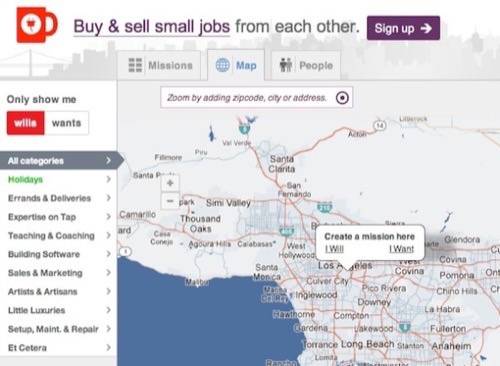
There aren’t many missions on the map right now, but it’s early yet. Santa Monica’s startup scene is lighting up, and Reisgen says Sparqlight’s workclub has mostly been populated by high-tech workers. It’s a different arrangement than the San Francisco workclub, which is a more typical café space. “We’re an actual office,” says Reisgen. “So we miss out on the opportunities for walk-in traffic and exposure that they have,” but instead they get focused co-workers looking for an office environment.
Reisgen’s co-founder, Bryan Koch, helped start a Santa Monica co-working group called Jelly, and he was involved early with the CoLoft work space. Though their startup has a permanent, physical office, they still want the benefit of having various creative people coming in and out all the time. Even in businesses with fixed locations, the future of work is changing minds.
How To Outgrow Starbucks
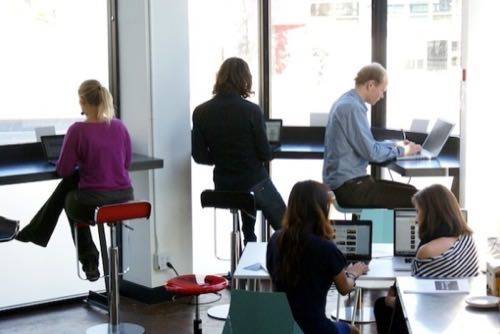
Rosedale says life in the San Francisco workclub is “going great.” Its workers are still largely from the tech world as well, but SF has had some amazing and off-the-wall missions. “I think, as this kind of work style grows,” Rosedale says, “we’re going to see physical locations that are hubs for more non-tech, non-startup work.”
That will lead to more expansions, and Rosedale views workclub partnerships with locations as a win-win. “What we’ve realized from a business perspective is that, since Coffee & Power seeks to be a transaction platform for people doing jobs for each other, we’re not threatening. We’re not revenue competitive with physical locations.”
There’s no reason not to make a co-working space into a C&P workclub. That makes this idea stupendously easy to scale. “What if we could make a physical network of locations that we could grow much, much faster than, say, Starbucks can?”
Do you co-work, freelance, or otherwise participate in the future of work? Share your experiences in the comments.

















